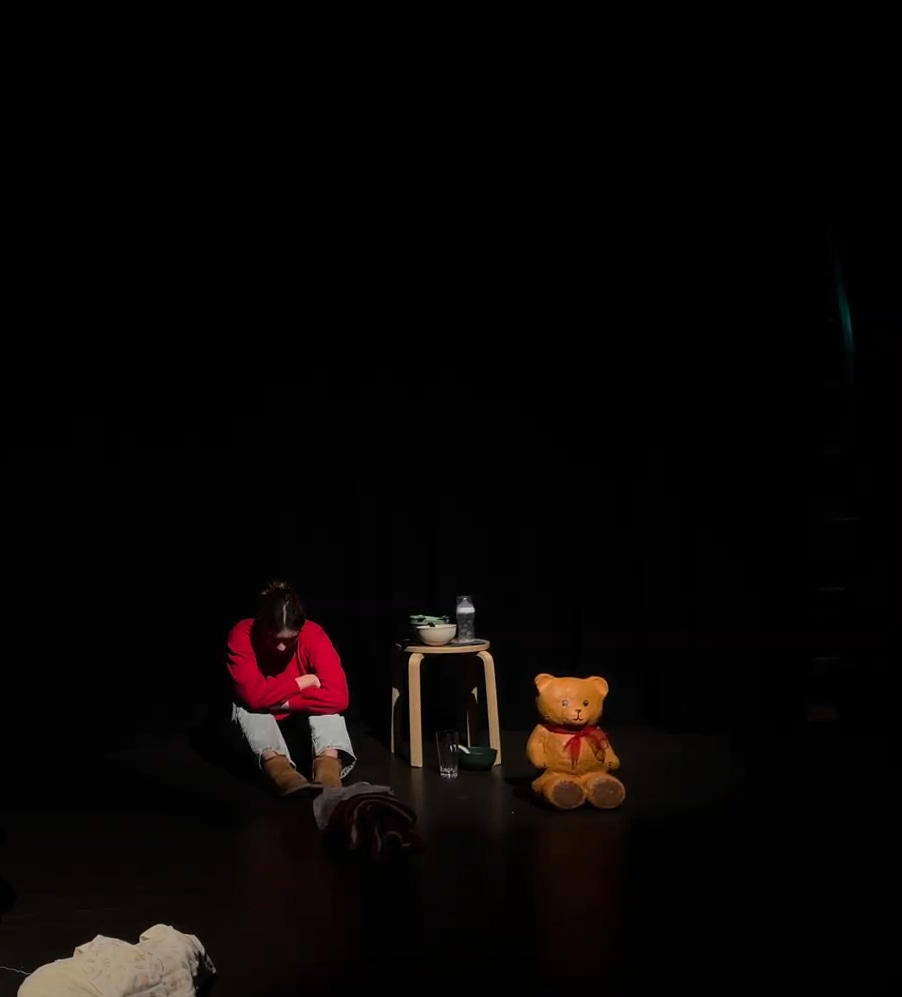Research to rehearsals: Data’s big break in theatre
How do you go about turning statistics into a performance? Dr Antonia Mackay shows us how with her new play Three M’others, which revealed the harrowing impact of the pandemic on maternal healthcare
Datasets can be painstaking to analyse and interpret. So when it comes to presenting academic research, perhaps a performance might be the way forward? Leading academic researchers are swapping traditional datasets for showstopping plays, turning their findings into something we can all experience, understand and – even enjoy!
The Human Story Theatre founded by Amy Enticknap and Gaye Poole in 2016 is an organisation that operates on this very premise.
‘We are passionate that theatre is for all and believe by highlighting health and social care issues within our productions, that it is an exciting way to engage, entertain and raise awareness.’
Researchers Råbu, McLeod, Tønnessen, and Moltu have views on the topic of creating art (theatre) from research, which they outlined in a journal article. It states that the impact of this non-traditional mode of communicating data is likely to have a massive impact on audiences because qualitative research is ‘largely published in academic journals that are not readily accessible to members of the public.’
When it comes to social issues, public opinion plays a major role in achieving long-term change. This means it is especially important to avoid alienating the general population and conveying research through art offers something special, experiential and useful. According to Langer: ‘Through music, movement and visual representation, the arts provide non-discursive ways of knowing’.
Two Canadian researchers, Kontos and Naglie, also found that theatre in particular has an ability to communicate information, especially within professional settings.
The Human Story Theatre’s latest project, Three M’others, written by Dr Mackay, a Senior Lecturer at Oxford Brookes University, is based on a series of interviews conducted with women who gave birth during the COVID-19 pandemic in 2020. Mackay is hesitant to refer to herself as a playwright, instead preferring to be known as a researcher who has turned her work into a play.
When asked why she chose this particular route as opposed to traditional means of presenting her findings, Mackay highlighted the importance of needing something more engaging: ‘I had a choice between a workshop or a lecture or a seminar series and I was looking at all of the options and for some bizarre reason, in April 2023, I decided I’m not going to do the usual workshop or a lecture or a seminar series, because how boring is that?’ she says. ‘I thought I’ll do a play instead.’
Eisner explains communication via art allows for a greater ‘capacity for empathy’ and ‘openness to being moved’. Three M’others follows three women who give birth during the UK’s first lockdown and their respective antenatal and postnatal journeys. Given the topic, a play seemed like the most compelling format.
‘The short answer is it needed to be done in ways that had impact,’ says Mackay.
But there are unique challenges that come with turning testimonies from real people into performance art, particularly an ethical dilemma. Mackay’s struggle came from needing to turn her research into a complete story without misrepresenting the participants’ experiences. ‘I was very aware of the fact that I had a certain responsibility with this data and mishandling the data or not properly representing the data would be problematic,’ she says. ‘How do I create characters that have whole stories without affecting the accuracy of that testimony?’
While playwrights traditionally have authority over their work – at least during the writing process – writing based on an amalgamation of people who may very well come see the play themselves is another matter entirely. ‘Without changing their words, I had to create full stories which was very hard.’
The play focuses on the stories of three women but that doesn’t mean the play is limited to just part of the population. A male member of the audience at an early test performance approached Mackay. ’We all know that terrible things happened during the pandemic but I didn’t know that new mothers had to go through this.’
Having struck such a chord with a range of people, Mackay sees a more far reaching future for the play than she had first imagined: ‘The plan is to take this national! We would need Arts Council funding first though.’
The end-goal is to use the play’s profile to gather data from mothers across the country, and use that data – working with the NHS – to improve digital maternal healthcare.
While theatre companies performing stories with the intention of educating and inspiring change is not new, a researcher themselves taking the role of playwright instead of consultant is a tall order, and one Mackay has faced head on. With no boring datasets insight!
Three M’others was performed at The North Wall Arts Centre on the 30th and 31st of May, followed by a Q&A with experts on the subject on its final night. For more information and updates on the next stages of the play, check out their social media pages on Instagram, X and Facebook.



